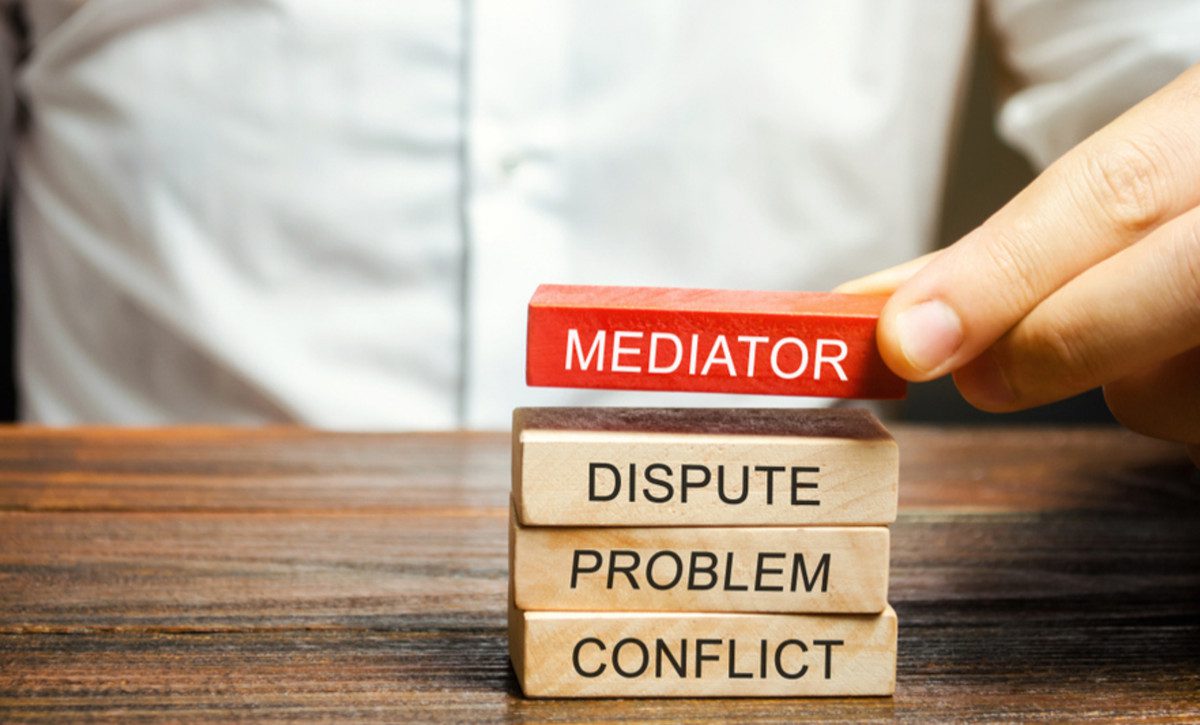
What is Dispute Resolution? Understanding Types, Importance, and Methods

Dispute resolution is the process of resolving conflicts between parties It is important to avoid litigation, preserve relationships, and optimize productivity Methods include negotiation, mediation, arbitration, lawsuits, and government regulation The choice depends on the type of dispute, parties involved, jurisdiction, time frame, cost, and desired outcome
Resolving disagreements or conflicts between two parties is referred to as dispute resolution, which can be achieved through negotiation, mediation, or arbitration. In the business world, dispute resolution is commonly used to settle disputes between employees, customers, or other businesses, often involving a neutral third-party such as a mediator or arbitrator.
What is Dispute Resolution?
When two parties are unable to come to an agreement, dispute resolution comes into play. It involves various methods such as negotiation, mediation, or arbitration. These methods are collectively known as alternative dispute resolution (ADR processes) and they offer a way to resolve disputes without having to go to court.
Importance of Dispute Resolution
The reasons behind the important of dispute resolution include
1. Avoiding litigation
Dispute resolution methods are often faster and cheaper than going to court.
2. Preserving relationships
Dispute resolution can help parties preserve relationships that would be harmed by litigation.
3. Resolving complex issues
Dispute resolution can help parties resolve complex issues that might be difficult to resolve in court.
4. Optimizing productivity
Dispute resolution can help businesses optimize productivity by resolving disagreements quickly and efficiently.
What are the types of Dispute Resolution? – Methods of Dispute Resolution
The three most common types of dispute resolution are negotiation, mediation, and arbitration.
1. Negotiation
Negotiation is a crucial skill that involves parties striving to find common ground on a contentious matter. It can take on an informal nature, like haggling over a purchase price between two individuals, or a more formal approach, such as a business contract negotiation.
2. Mediation sessions
Mediation is a process in which a neutral third party helps parties reach an agreement on a disputed issue. Mediation is often used to resolve business disputes.
3. Arbitration process
Arbitration is a process in which a neutral third party hears both sides of a dispute and makes a binding decision. Arbitration is often used to resolve business disputes.
4. Lawsuits
A lawsuit is a process in which one party sues another party to resolve a dispute. Lawsuits are often used to resolve business disputes.
5. Government Regulation
Government regulation is a process in which the government enacts laws or regulations to resolve a dispute. Government regulation is often used to resolve business disputes.
6. Collaborative law
Collaborative law is a process in which parties work together to resolve a dispute. Collaborative law is often used to resolve business disputes.
7. Avoidance
Avoidance is a process in which parties avoid conflict or disputes altogether. Avoidance is often used to resolve business disputes.
8. Conciliation
Conciliation is a process in which a neutral third party helps parties reach an agreement on a disputed issue. Conciliation is often used to resolve business disputes.
9. Settlement
Settlement is a process in which parties reach an agreement to resolve a dispute. Settlement is often used to resolve business disputes.
10. Facilitation
Facilitation is a process in which a neutral third party helps parties reach an agreement on a disputed issue. Facilitation is often used to resolve business disputes.
How does Dispute Resolution work?
Dispute resolution typically works in the following steps
The parties involved in the dispute meet with a neutral third party, such as a mediator or arbitrator.
The third party listens to both sides of the dispute and helps the parties reach an agreement.
Once an agreement is reached, the dispute is resolved and the parties are bound by the agreement.
How to Choose a Dispute Resolution Method?
When choosing a dispute resolution method, it is important to consider the following factors:
1. The type of dispute
Disputes can be civil or criminal. Civil disputes are typically resolved through negotiation, mediation, or arbitration. Criminal disputes are typically resolved through trial.
2. The parties involved in the dispute
Disputes can involve individuals, businesses, or government agencies. Each type of party has different needs and interests.
3. The jurisdiction
Disputes can be resolved in court, through arbitration, or through mediation. It is important to choose a dispute resolution method that is appropriate for the jurisdiction.
4. The time frame
Disputes can be resolved quickly or slowly. It is important to choose a dispute resolution method that is appropriate for the time frame.
5. The cost
Disputes can be resolved cheaply or expensively. It is important to choose a dispute resolution method that is appropriate for the cost.
6. The outcome
Disputes can be resolved in favor of one party or the other. It is important to choose a dispute resolution method that is appropriate for the desired outcome.
Dispute vs Conflict: What’s the Difference?
Disagreements and clashes are two terms that are commonly interchanged, yet they have distinct meanings. Disagreements, referred to as disputes, can be settled through an agreement between two parties by means of mediation, negotiation, or arbitration. On the other hand, clashes, known as conflicts, are disagreements that cannot be resolved and often escalate into violent situations. Conflict resolution is the process of finding a resolution to a conflict.
What is Dispute Settlement?
Dispute settlement is a crucial aspect of resolving conflicts, particularly in the realm of business. This process can take various forms, including negotiation, mediation, arbitration, or trial, depending on the nature and severity of the dispute. Ultimately, the goal of dispute settlement is to reach a resolution that is fair and satisfactory to all parties involved.
What is a Binding Decision?
A binding decision holds legal weight and requires compliance from all parties involved in the dispute. Arbitrators or mediators often make binding decisions as a means of resolving business disputes. By accepting the decision, the parties involved agree to abide by its terms and conditions, bringing finality to the dispute.
Conclusion
To effectively resolve a business dispute, it's crucial to carefully consider the dispute's nature, the stakeholders involved, the applicable jurisdiction, time constraints, costs, and desired outcomes when selecting a Dispute Resolution method. Dispute Settlement is the ultimate goal of any resolution process.
How important do you consider Dispute Resolution in business? Share your thoughts in the comments below!










